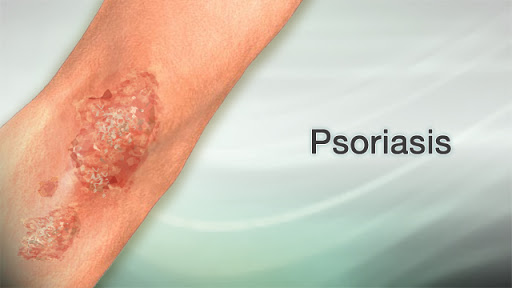
Psoriasis is a skin condition that causes red patches that are itchy and red in color, affecting nearly 30 million people globally. The symptoms mainly occur around the trunk, knees, scalp, and elbows. Currently, there is no single known psoriasis treatment. However, there are things that one can do to alleviate the symptoms and make the skin look healthier and younger. In this guide, we share some important tips on how you can care for your skin when you have psoriasis.
1. Soothe Your Skin With Warm Baths
When you have psoriasis, it is important that you take a daily bath with mild soap. The water should be reasonably warm to soothe the itchy spots and get rid of dry skin. Each time you take a warm bath, make sure to consider soaking the affected areas in warm water for around 15 minutes.
For improved results, you can add finely ground oatmeal or Epsom salt to your bath. Even as you do that, the water and soap should be kept mild to avoid possible skin irritation. Note that harsh soaps and high temperatures are not good for skin that is already sensitive.
2. Avoid Scratching and Picking
When you have psoriasis, you will experience a strong urge to scratch and pick, but that is what you must avoid. If you scratch, you will open the skin and pave the way for more infections. This is because disease-causing microorganisms will find their way into your skin.
When you keep scratching and picking your skin, some sores might appear where they never used to be. To be safe, you want to trim your nails and keep them short all the time. If you feel itchy, you might want to use an antihistamine. A moisturizer can also help when you feel like scratching the affected areas.
3. Just Take It Easy
According to studies, the condition might get worse when someone is stressed. This is because they will itch more and scratch the affected areas. Some patients also report that they got infected with psoriasis after a stressful encounter. It is, therefore, possible to calm the symptoms by lowering the level of anxiety.
In case you didn’t know, there are many successful methods that can be used to lower stress. For example, you can develop a support system of friends and family. Think about some of the things that matter the most for you and invest your time and effort in them.
![]() 4. Eat Healthily
4. Eat Healthily
According to a 2017 study, diet is an important factor when managing psoriasis.
To reduce inflammation, you might want to try things such as nuts, fish, and foods containing omega-3 fatty acids. These foods are good for alleviating the symptoms associated with psoriasis. Olive oil is also essential because it has some soothing benefits that you might need when struggling with the condition.
5. Try Dietary Supplements
Though psoriasis is a condition that mainly affects the skin, it should be known that it begins inside the body. It starts in your immune system, which means it might open ways for other infections that you didn’t expect. It originates from the T cells, a type of cell that is programmed to prevent infections from attacking your body.
To manage the infection, you might try some dietary supplements such as Vitamin D, fish oil, Oregon grape, aloe vera, and milk thistle. Before you try any of the supplements mentioned, you need to see your doctor, and you will be advised accordingly.
Final Word
There is never a single solution for psoriasis treatment, but the tips shared above might make life easier for you. If you maintain a healthy diet and avoid scratching your skin, you will notice a huge difference after some time. Make sure that you only use a safe moisturizer that will not affect your skin further. However, if the symptoms keep getting worse, contact a healthcare provider immediately.

 4. Eat Healthily
4. Eat Healthily